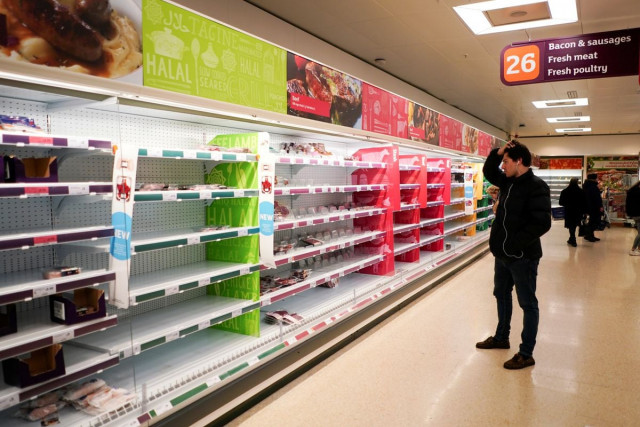Brazil eyes $1.17 trillion halal food market
Country is keen to increase farm product exports to Islamic countries, says official

Brazil, the world's largest exporter of foodstuffs like coffee, beef and soybeans, is keen to increase farm product exports to Islamic countries, said Flavio Bettarello, deputy trade secretary at the Agriculture Ministry.
Speaking at the Global Halal Brazil business conference in Sao Paulo on Monday, Bettarello told delegates the country is in talks with Indonesia, Lebanon and Morocco to expand access to such markets and sell agricultural products other than corn, beef, chicken and raw sugar.
"There is a concern relative to the types of products exported and the destinations," Bettarello said.
The Organisation of Islamic Cooperation (OIC), which comprises 57 members, imported $190.5 billion of food items including wheat, corn, sugar, rice, milk and dairy products in 2020, according to data compiled by the Arab Brazil Chamber of Commerce. Of that total, Brazil accounted for $14.1 billion, the data showed.
Also read: Jordan okays meat imports from Pakistan
Bettarello said that about half of Brazil's exports to the OIC countries to go only five nations. He cited Turkey, Iran, Indonesia, Saudi Arabia and Bangladesh as the biggest importers of the group.
He said Brazil would continue to push to access new markets and diversify products sold, and cited the benefits of a recent commercial agreement with Egypt.
The move reflects Brazil's desire for a bigger share of the global food trade.
The country is already the world's biggest exporter and producer of halal meats including beef and chicken, which are produced according to Muslim dietary requirements.
Muslims spent an estimated $1.17 trillion to buy food in 2019, according to the widely cited State of the Global Islamic Economy Report. By 2024, Muslims are projected to spend $1.38 trillion to buy food, according to the report.


















COMMENTS
Comments are moderated and generally will be posted if they are on-topic and not abusive.
For more information, please see our Comments FAQ